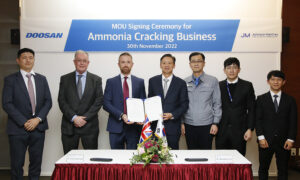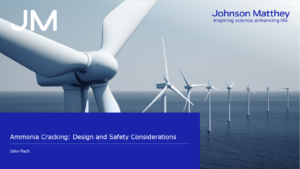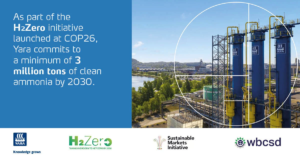
Johnson Matthey and Doosan Enerbility will develop hydrogen-fueled, closed cycle gas turbine power plants in South Korea. Johnson Matthey will provide cracking technology and catalysts to convert ammonia into pure hydrogen fuel, while Doosan is currently developing a 380 MW, 100% hydrogen fed gas turbine, which will reportedly be complete by 2027. The two will work together to integrate cracking & CCGT technologies, potentially providing a blueprint for similar power plants in the future.


